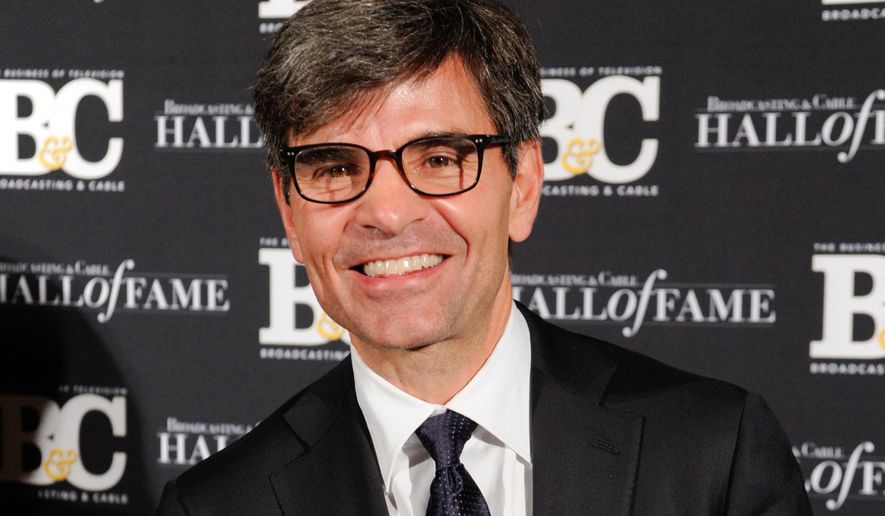Former Clinton aide George Stephanopoulos tried to spark a gun debate inside the White House in 1994 over a memo calling for Democrats to be more cognizant of the political consequences of anti-gun policies, according to documents from the Clinton Presidential Library.
The Jan. 1994 memo, by former President Carter’s press secretary, was critical of gun control efforts, and Mr. Stephanopoulos tacitly embraced it, saying it “makes a lot of sense.” But their entreaties were ignored. President Clinton would instead pursue the assault weapons ban that reignited the gun control debate, turning the issue politically toxic and damaging Democrats for years.
But the memo provides a preview of the tightrope 2016 Democratic presidential front-runner Hillary Rodham Clinton will have to walk on guns and on broader questions of how she squares her own political needs with the stances her husband took in the 1990s.
The memo to Mr. Stephanopoulos, who was then a senior adviser to Mr. Clinton and is now an ABC News host who is currently under fire for $75,000 in contributions he made to the Clinton Foundation, warns of the potential electoral consequences an aggressive gun control push could bring.
“As much as I hate to say it, the NRA is effective primarily because it is largely right when it claims that most gun control laws inconvenience and threaten the law-abiding while having little or no impact on violent crime or criminals,” wrote Jody Powell, the former Carter press aide.
“I support registration in principle,” the memo reads. “But two questions need to be asked. Are the people causing the problem going to comply voluntarily? If not, do you have a way to effectively enforce compliance? If the answer is ’no’ in both cases, consider whether the benefits are worth making Bob Dole majority leader.”
But over strenuous opposition from groups like the NRA, Mr. Clinton did sign a ban on military-style, so-called “assault” weapons in Sept. 1994, months before Republicans retook control of Congress.
Mrs. Clinton has been an outspoken supporter of gun control proposals, saying during the 2008 presidential campaign she would work to restore the 1994 assault weapons ban, which lapsed in 2004.
“We cannot let a minority of people — and that’s what it is, it is a minority of people — hold a viewpoint that terrorizes the majority of people,” she said at a CNN town hall event last year.
Mrs. Clinton also said last year that the “vast majority” of Americans, “even law-abiding gun owners,” want “background checks that work” and information that is shared immediately, and recent polling does also show broad support for individual measures like strengthening gun purchase background checks.
But public opinion on the issue has shifted since the 1990s. A recent Pew poll showed that, for the first time in more than two decades, more people in the country now place more of a value on protecting the right to own guns than they do on controlling gun ownership.
On Capitol Hill, the push for stricter gun controls peaked in the months after the December 2012 Newtown, Connecticut, school shooting, with President Obama calling for expanded background checks and limits on sales of military-style rifles and large-capacity ammunition magazines.
Those efforts failed in the Senate, however, and the ensuing two years have seen lawmakers on the Hill shy away from the issue.
Democrats are still trying to adjust after the 2000 election, when many analysts said the Clinton gun control record hurt then-Vice President Al Gore, who was running to succeed Mr. Clinton in the White House.
Mrs. Clinton’s campaign did not respond Tuesday to questions about the Stephanopoulos memo. But she has distanced herself from some of her husband’s policies as her second run at the White House grinds into gear — most notably on the anti-crime bill he signed.
She devoted her first major policy address of the campaign to calling for an end to the era of “mass incarceration.” Soon afterward, Mr. Clinton himself acknowledged the 1994 crime bill, which led to stiffer penalties for felons and more cops on the streets, contributed to current incarceration rates in the country and gave his blessing to Mrs. Clinton’s efforts on the issue.
And though she raised some concerns Tuesday on the campaign trail about a free trade deal with Pacific Rim countries being pushed by the Obama administration, Mrs. Clinton has not definitively said whether she supports the deal, which is pitting the White House against liberal Democrats on the Hill.
Liberal critics of the deal have slammed other trade pacts like the North American Free Trade Agreement (NAFTA) — brokered during her husband’s administration — as detrimental to U.S. workers.
• David Sherfinski can be reached at dsherfinski@washingtontimes.com.




Please read our comment policy before commenting.